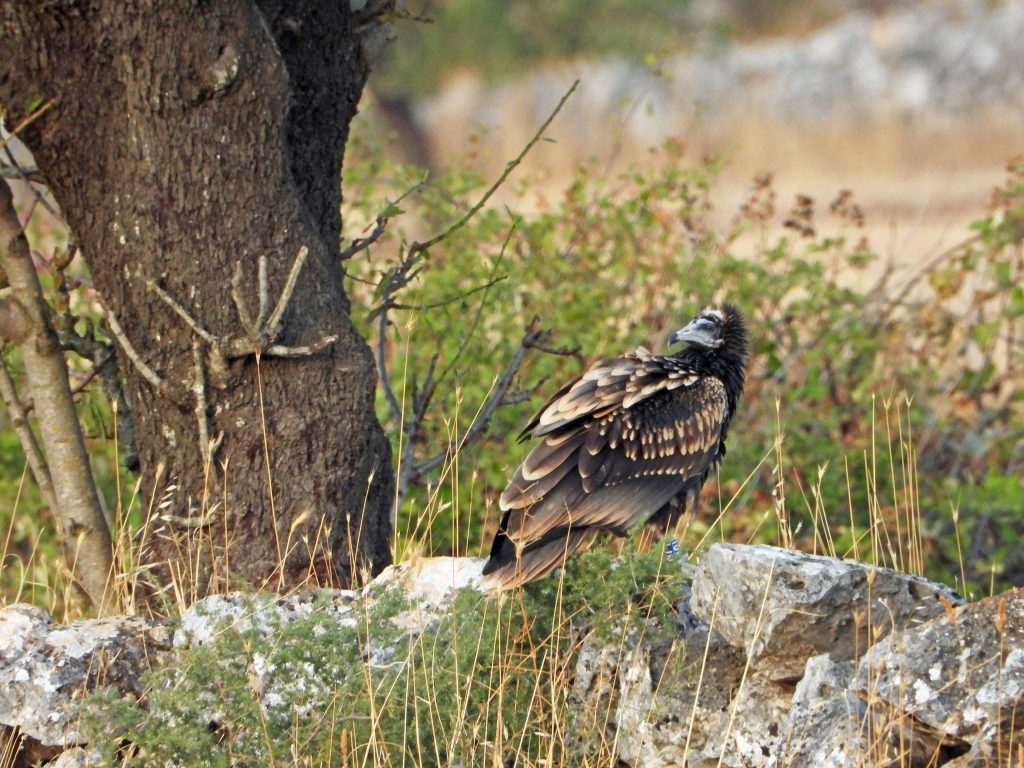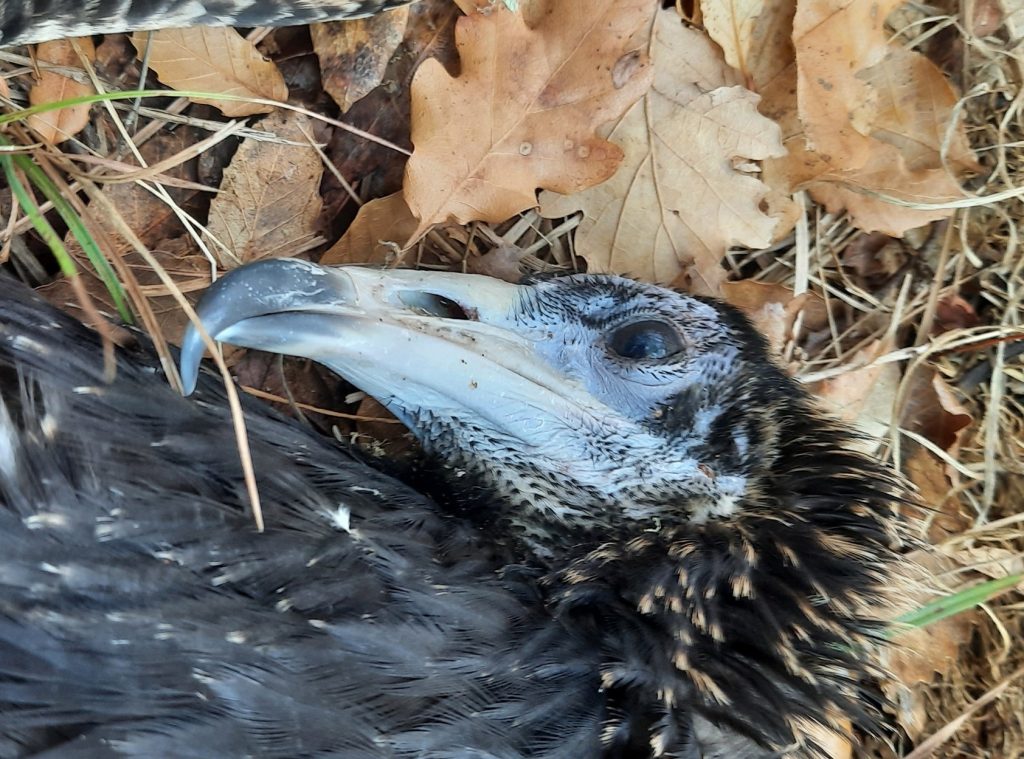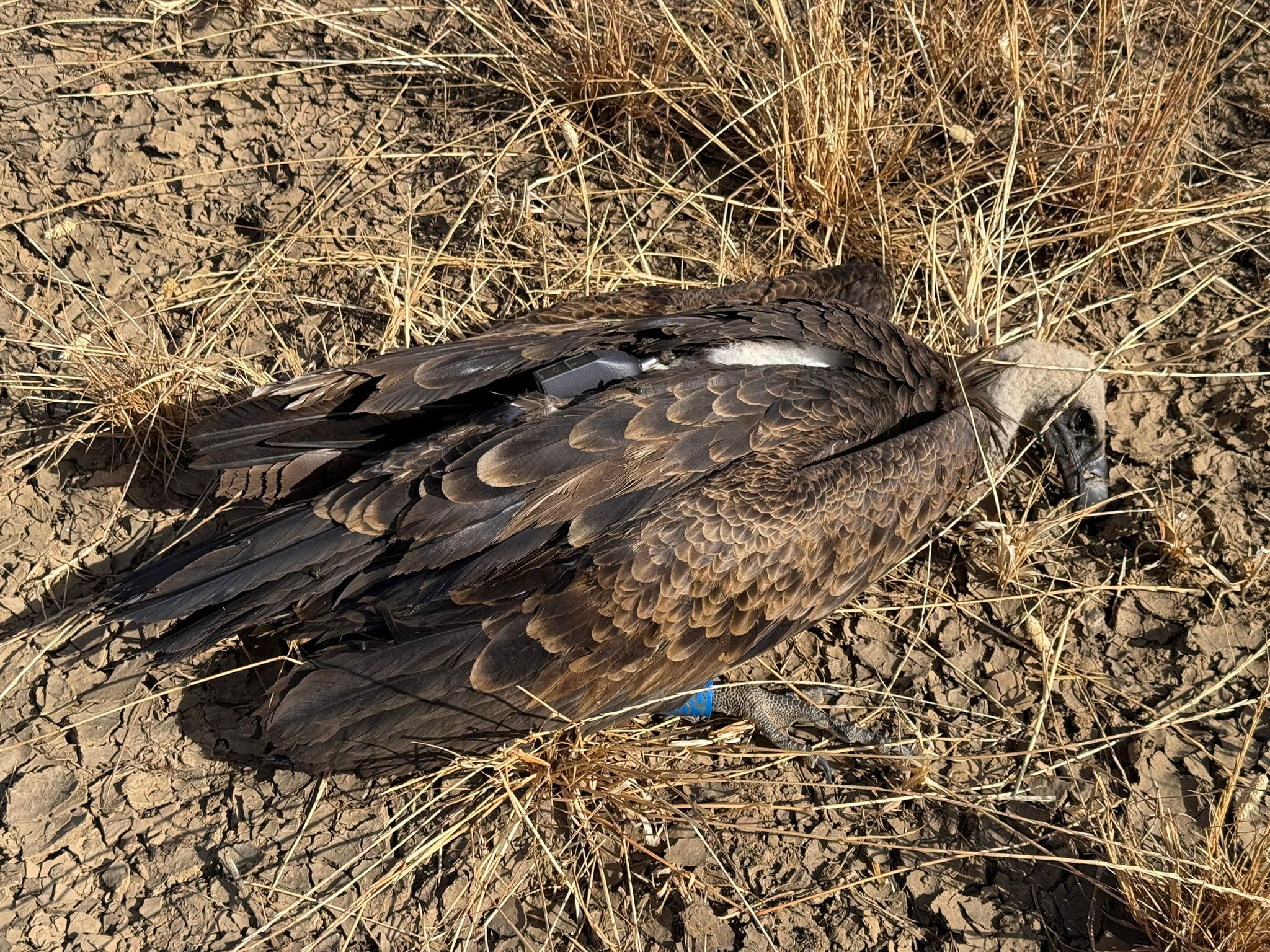
In August 2021, the LIFE Egyptian Vulture project released five captive-bred Egyptian Vultures that hatched in CERM Centro Rapaci Minacciati Association into the wild in Basilicata, Italy.
Ahead of their release, they were equipped with GPS transmitters provided by us at the Vulture Conservation Foundation (VCF), enabling ISPRA and CERM to constantly monitor their movements and behaviour.
Between the end of August and the beginning of September 2021, four of the five young Egyptian Vultures released in the Parco della Murgia Materana, Italy, undertook their first autumn migration heading to Africa. Sadly, the fifth Egyptian Vulture Jaunita had an accident before migrating south.

Juanita
The Egyptian Vulture Juanita has unfortunately died due to electrocution. A week after her release, which took place on August 20, 2021, Juanita’s movements led her to the Adriatic coast of Puglia. After travelling 120 km, as she was heading back to Basilicata, the young vulture landed on the support of a medium voltage power line in the countryside near Gioia del Colle (BA), outside the project area. Lucrezia, another Egyptian Vulture from this project, met the same fate in 2020 one year after its release in Italy. These episodes, which have been detected thanks to GPS tracking, confirm that the non-isolated power lines are dangerous, especially in areas with a scarcity of trees in which the supports of the lines represent perfect and rare perches. The isolation interventions carried out by E-Distribuzione in sensitive areas for the Egyptian Vulture within this project are very important for the protection of this species as well as many other species of birds with a medium-large wingspan. The responsible team will continue these necessary operations, implementing a well-planned long-term strategy, starting from protected areas and those most important for bird species vulnerable to electrocution.
Pablo
Pablo left the release area on 29 August and arrived in Sicily on 3 September. After following the west coast northwards, on 7 September at 09:31, he left directly for the Island of Pantelleria and, without stopping in the small island, arrived in Tunisia at 17:45 (covering 350 km in 08:15 hours of flight).
Gabriel
Gabriel also departed from Basilicata on 3 September. On 6 September, Gabriel crossed the Strait of Messina and continued his migration along the western coast of Sicily, arriving in the province of Trapani. On 12 September at 10:51, he left Sicily heading for Pantelleria island, which he reached at 01:51 (118 km on the sea). The young Egyptian Vulture stayed on the island for two days, under the surveillance of the Forest Carabinieri of the new National Park. On 14 September, with a flight of 154 km, he reached Tunisia near Hammamet and then continued towards Algeria.
Lucas
Lucas departed from Basilicata on 3 September. Lucas reached Sicily on 5 September and the following day arrived on the island of Gozo (Malta Archipelago), flying 152 km over the sea. He spent the night on the island. At 06:40 on the morning of 7 September, a person with two dogs observed Lucas in flight and immediately after clearly heard repeated gunshots. Local ornithologists were present at the scene to help prevent the vulture from being targeted by poachers and witnessed the episode. Malta is, unfortunately, well known for the serious acts of poaching committed against migratory birds. For several hours, Lucas’ GPS did not send any signals and this led to fears that he had been injured or that his GPS transmitter had been damaged. Fortunately, subsequent new signals revealed that Lucas had rushed away, at a speed of 63 km per hour, from the place where the gunshots had been fired and then stopped on a cliff without phone signal, necessary for the GPS, and unreachable by those who wanted to shoot him down. The fact that Lucas was truly unharmed became clear when about three hours later (09:37) he resumed the sea route and headed towards Libya. At 19:15, the young vulture had landed on a large pylon in the vicinity of Tripoli, after having flown continuously over the sea for 384 km, and from there made his way to Algeria.
Isabel

Isabel, the youngest of the four Egyptian Vultures, was the last to leave the Murgia Materana Park on 6 September. Arriving in Sicily on 10 September, the young female, unfortunately, chose the riskiest route to Africa, the one that passes through the island of Malta, a route taken after stopping for a few days in southern Sicily. This choice was fatal, in fact, when she arrived in Malta on 14 September, she disappeared in the evening and everything indicates that she was killed by shooting. A
After what happened to Isabel, we at the VCF and CERM sent an open letter to the Prime Minister of Malta urging him to take every possible action to investigate and punish this crime. It is unacceptable that in 2021 a highly protected species can be illegally killed and this crime remains unpunished.







